Jean-Luc Godard: The filmmaker who left us breathless
The French-Swiss auteur, considered one of the key figures of the French New Wave, will be remembered for his definitive style and treatment that broke conventions and redefined the approach to filmmaking
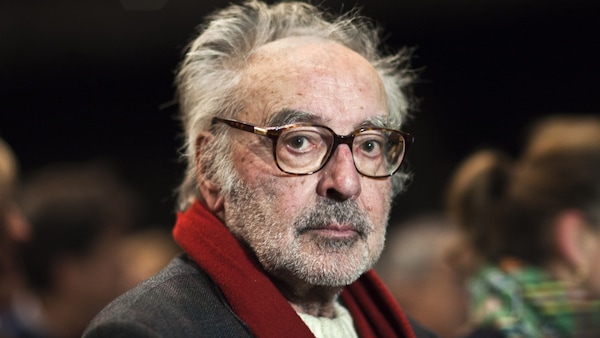
Last Updated: 06.32 AM, Sep 15, 2022
For anyone who has survived film school anywhere in the world, the news of Jean-Luc Godard’s passing may trigger a mixed sensation. The works of the auteur known for driving (if not fuelling) the Nouvelle Vague or the French new wave in cinema, have since been considered for academic purposes and revered by filmmakers worldwide. Radical, revolutionary, improvised and immersive would all be suitable adjectives for describing Godard’s films that defied conventions and yet, managed to draw one to the subject through his unique lens.
The last of the modernists, Godard, was born in the French capital and attended school in Switzerland. Having swung a job with Télévision Suisse Romande, he even pulled off manual labour and worked on constructing the dam surrounding the Dixence river. It is here that he made his first film, Opération Béton, a documentary short film for which he also lent his voice. On acquiring a degree, he became a familiar figure in film clubs which mushroomed across Paris after the war. This is when he crossed paths with renowned film critic André Bazin and filmmaker François Truffaut. He landed a publicity job with 20th Century Fox and even tried his hands at writing dialogue and picking up the fundamentals of editing. Nearly obsessed with the medium, he also wrote incisive pieces on cinema in a few magazines, including Cashiers du Cinema and La Gazetta du cinéma (in which he wrote under the name ‘Hans Lucas’) before venturing into films. It was a time when film critics would not just examine a film for what it’s worth but also deliberate over how accurately it reads into the narrative of life or proposes to alter it.
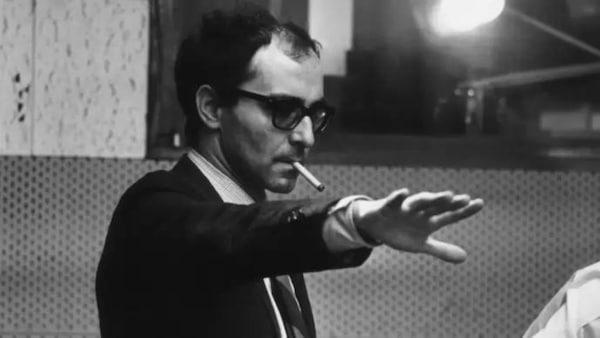
His debut full-length feature, Breathless (À bout de souffle) is still considered one of his most seminal cinematic contributions for it broke the mould and went on to educate and inspire filmmakers worldwide through the tools and techniques employed by the maverick in the film. Water-tight with references and nods to American gangster films of the time, Breathless was also lauded for being one that was produced on a cash-strapped budget and a tight schedule. Godard’s definitive style of using jump cuts between scenes, incoherent dialogue and liberal use of handheld shots was considered bold and path-breaking for the time. Some did find it unsettling as it didn’t subscribe to tested and accepted norms but it was also liberating for a generation of filmmakers to follow. His high regard and borderline obsession with Humphrey Bogart was unambiguously shared by Michel, the protagonist in Breathless – fashioned after the Hollywood legend in the film. But the inspiration behind the project wasn’t limited to just this. The original plot about a criminal on the run and his love interest was originally drafted by Truffaut who eventually dismissed the idea. But when Bogart decided to take it up for Breathless, he sought Truffaut’s nod before going ahead with his debut feature. The film was dubbed a cultural phenomenon and Bogart was honoured as Best Director at the Berlin Film Festival for the same.
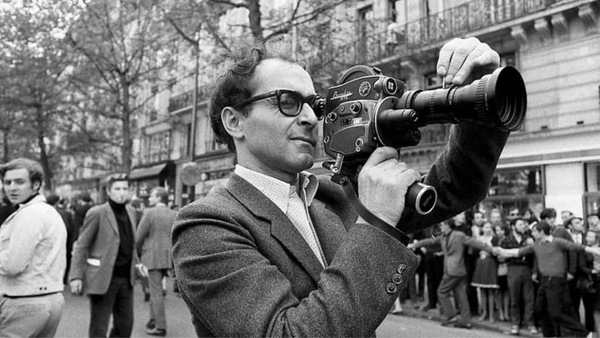
Even before his debut, Godard experimented with the medium by directing several shorts such as Charlotte and Véronique and All the Boys Are Named Patric, which packed the filmmaker’s signature flourishes and tone. But when he began wielding the megaphone to helm full-length features, he decided to approach every genre with the same inventive streak. No wonder then, from Scorsese to Tarantino, some of the most celebrated directors from across the world have only aspired to model themselves on the French-Swiss filmmaker and adopt his philosophy and approach to films.
Being a man who held strong political opinions, Godard’s films encapsulated the silent tension of the times and hoped to subliminally divulge the relations held between nations which had suffered the ramifications of war. This was astutely depicted in the espionage thriller Le petit soldat (The Little Soldier), a spy thriller surrounding France’s war with Algeria. This unfiltered approach to examining the ravages of war and how it affected those from both sides were met with rigid opposition. In fact, the film was actually banned for three years before it was allowed to be screened in 1963. But Godard’s passion for analysing international conflicts drew him to consider affiliated subjects which led to films such as Film Socialisme, 2010 and Notre musique (set against the war in Sarajevo). The former was panned by critics and noted film critic Roger Ebert called it “incoherent, maddening and deliberately opaque”. But Godard loyalists were quick to defend the film and its maker who never compromised with his vision and fluid approach to rendering his ideas on the big screen.
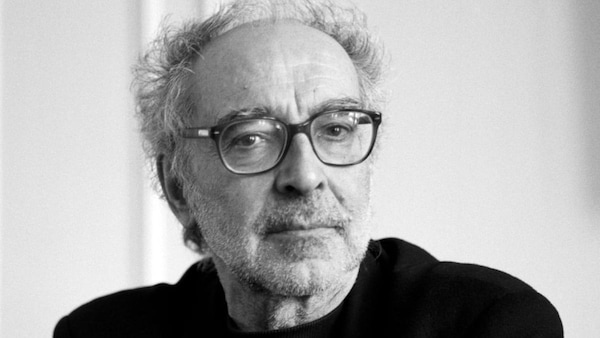
In his prolific career, the filmmaker invested his skills in various genres with sporadic success and much critical acclaim. Be it a western (Bande à part/ Band of Outsiders, 1964) or a musical comedy (Une femme est une femme/A Woman Is a Woman), he managed to instil every film credited to him with the same abandon.
A virtuous man with strong opinions, Godard famously flaunted a dry sense of humour. In an interview, a bit over a decade ago, he had a unique solution to Greece’s economic crisis. He explained that since the Greeks invented the word ‘therefore’, they deserve 10 Euro as royalty for each time the word is uttered by anyone. In an interview with the Guardian, he said, “We have the necessary technology to detect all these “therefore” on Google. We can charge through iPhone as well. Every time Angela Merkel says to the Greeks,’ We lent you the money, therefore you have to pay off the interest rate’, she will pay firstly for the copyright.”
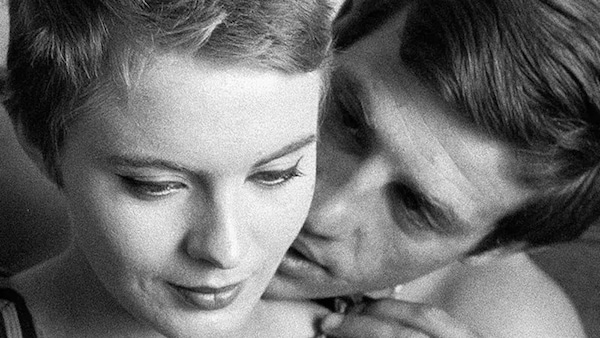
Godard, who passed away at 91, opted for ‘assisted dying’ which is legal in Switzerland. The filmmaker pointedly shared his views on death when interviewed during the Cannes film festival in 2014. “If I’m too ill, I don’t have any desire to be lugged around in a wheelbarrow... not at all.” He was 83 at the time and admitted that he wouldn’t be averse to the idea of assisted dying, should it come to it.
Now that Godard has breathed his last, it’s like life has been snuffed out of cinema. We may have had filmmakers who have left us spellbound, but there was only one who left us breathless.

